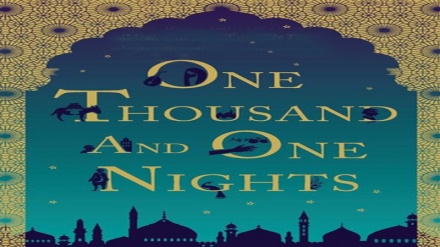Iranian stories and fables (144)
In this edition we will continue relating the story of the liar servant. We hope you’ll enjoy the program.
In the previous programs we discussed multiple themes for the stories of the one thousand and one nights the most important of which is the issue of wonder. We also discussed the stabile and unchanging nature of the main characters of the story.
We told you that the style of all of these stories is Islamic and among them are stories which equal the miracles of saints and wonders of mystics.
In one of the stories of the one thousand and one nights we read about the Chinese emperor who has the ability of granting immortality. In the story we read that the emperor has the power to grant this to anyone he likes. However none of the choices of the emperor are able to tolerate being indulged in joy in palace. The interesting point is that the best of the emperor's choices are bored with eternity and escape to gain freedom, death, pain and suffering instead. We also read that finally the dearest follower of the emperor leaves him and he becomes lonely. This is while just the mean and base people come to knock the palace and request immortality from the emperor.
Now it is time to continue the program with the rest of the story of the Liar Servant.
We said that once upon a time the caliph Haroun al- Rashid ordered his vizier Ja’far Barmaki to change their clothes and go around the city to get informed of what the people were doing.
So the caliph, his vizier and the caliph’s swordsman called Masroor set off.
They went on and on until they reached an alley where they found an old man who was carrying a basket on his head. He had a staff in his hand but was too weak to walk properly. So the caliph approached him and asked him if he needed help.
The old man said he was poor and hadn’t caught any fish since early in the morning and that had made him tired. So the caliph promised the old man to buy whatever he would catch for one hundred dinars. The old man accepted happily and as he brought up his net he found a heavy box which the caliph bought for one hundred dinars. The old man went home happily and the caliph and his officials went back to the palace with the box which they were unaware of the content. Arriving at the palace, they opened the box and saw the corpse of a girl immersed in blood. As the caliph saw the corpse he promised to find the murderer of the girl and punish him very severely. So he ordered his vizier to find the murderer and gave him three days to do the job. However the vizier couldn’t find the murderer and the caliph got angry and ordered his officials to hang Ja’far and his family at the entrance of the city. While everything was ready to hang Ja'far, two men from among the crowd shouted that they were guilty and had to be hung and the caliph asked each to prove his claim of murdering the young women. First the young man started telling his story and he said that he had bought three special apples from Basra for his wife but once he saw a black servant playing with an apple just like the apples he had bought from Basra; and the servant claimed that he had taken the apple from a woman who loves him very much. And as the man hears the servant's words, he goes unconscious and goes home to see what the matter was.
And now the rest of the story.
And the young man started telling his story:
"As I got conscious I went home and found just two apples beside my wife's bed. I asked my wife: "Where is the third apple?" And she said: "I don't know where it is." As I had believed the servant's words, I took a sharp machete and killed my wife with it. Then I cut her into pieces and put the pieces into a basket and threw the basket into the sea."
He then begged the caliph:
"Hang me immediately! I am afraid of the Day of Judgment."
Then he said:
"The matter is as I threw my wife's corpse into the River Tigris, I went back home. Over there I found my eldest son crying without knowing that her mother was killed. And as I asked him the reason for crying, he replied: "I took one of mom's apples and went to the street to play with my brothers. A tall black servant robbed the apple from me and asked: "Where did you get this apple?" I said: “My dad bought three apples from Basra." But the servant didn't give the apple back to me and beat me hardly and now I'm afraid that my mom gets angry." And when I heard these words from my son I realized that the servant had lied to me and I had killed my wife wrongly."
The young man then said:
"Then I started crying loudly. Suddenly this old man who is my uncle and father in law came in. I told him the story and he also started crying. We had mourning ceremonies for days and night. And I regretted why I had killed my innocent wife."
The young man then turned to the caliph saying:
"Oh caliph, punish me!"
The amazed caliph said: "By God the murderer of your wife is nobody but that lair servant."
The caliph then ordered his vizier to find the liar servant or else he himself would be punished. And the poor J'afar went out to find the liar servant…
For your information, it should be said that Haroun al-Rashid, like all of the Abbasid caliphs was a usurper of caliphate from its rightful and legitimate rulers, the infallible Imams of the Prophet’s progeny. And One Thousand and One Nights is just fiction and has no historical document. Even if these accounts are real they do not negate the crimes of the usurper Abbasid rulers against Muslims and their killing of the infallible Imams of Ahl al-Bayt and massacring of their followers.
AE/ RM/EA


